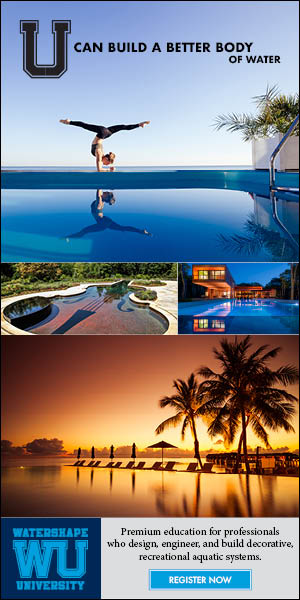water flow
Everyone is concerned these days about electricity, gasoline and natural gas and all other forms of energy. What is amazing is that, despite this surge in interest, very few people have considered ways in which swimming pools can be built to reduce the energy required to heat them - and by substantial amounts. This dearth of energy consciousness has nothing to do with the manufacturers of heating equipment. It's fair to say that most heater manufacturers - whether they pursue combustion heating with fossil fuel, compression heating with heat pumps or passive heating with radiant solar, absorbent solar panels or solar covers - all have optimized their own products and made them remarkably energy-efficient. The same is true of recirculation systems: Pumps of all kinds are optimized to very high efficiencies, and the pool and spa industry has made positive improvements in acknowledging the necessities of hydraulic efficiency (although it's fair to say we
Several years ago, I was asked to conduct a seminar on basic electricity for the members of a small homeowners' association. They were working their way alphabetically through the various trade disciplines with which a homeowner might come in contact. As I recall, they had covered attic fans, brickwork, cabinetry, carpeting, decks and doors at previous meetings. I learned that I was to be followed in coming months by fences, fireplaces and














